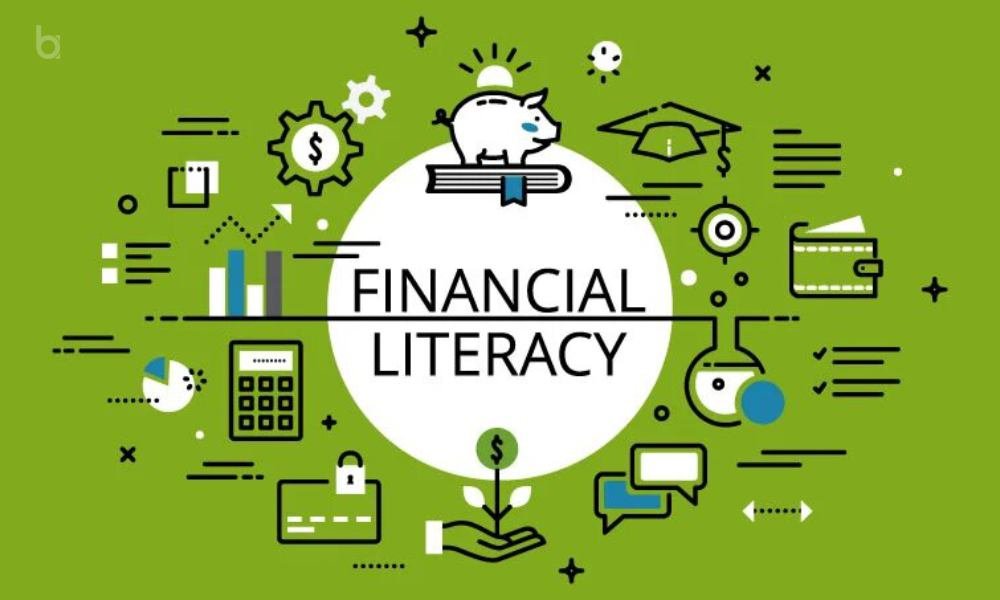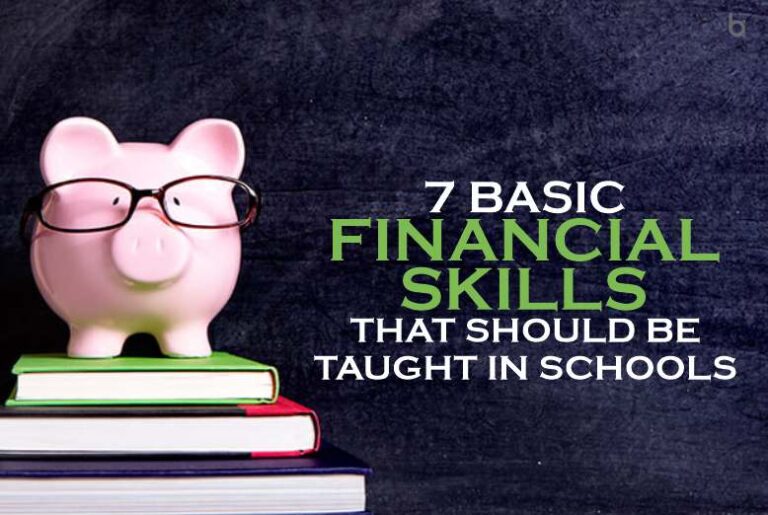Every adult that is struggling with taxes or other financial knowledge today has one major question-
“Why wasn’t I taught these things in schools?”. (Instead, we were taught why Mitochondria is the powerhouse of the cell).
Imagine how so many of us would not be facing issues if only we would have been taught basic financial literacy in schools.
Studies and surveys have shown that most adults feel that basic financial skills should be imparted at the high-school level. This would help individuals when they step into adulthood and professional lives.
In this article, we are going to look at 7 basic financial skills that should be taught in schools.
If you are a parent who is looking for schools that impart financial literacy, invest your time in reading the entire article.
List of 7 Basic Financial Skills that should be taught in Schools
1. Budgeting-
As adults so many of us find trouble in creating budgets and sticking to them. Every time, we go overboard and then take help from our credit cards, which forces us into endless debt cycles. Young adults at the high school level should be taught about the advantages of budgeting. This will allow them to understand its importance and develop best practices that will help them.
2. Savings-
Most financial experts state that savings are a ‘Habit’. We also know that habits that we learn in schools tend to stick with us for the rest of our lives. This is one major reason great institutions like Invictus International School from Singapore look to impart basic financial skills to students as part of their curriculum. Understanding this helps students value savings.
3. Investing-
While schools might not be able to teach students about crypto trading and investing, they can at the very least start with the basics. This means that the fundamentals of investing in different asset classes, the pros, and cons of the same, etc. are some areas that can always be covered. Once interest is developed, they will find that the foundations of investing have been laid.
4. Planning-
Ever heard the criticism that you have not set up yourself for long-term financial success? You haven’t as no one told you how to start your financial planning and set it up for success. Understanding the basics of budgeting, savings, investing, retirement funds, and taxes is what financial planning is all about. This will help you steer clear of financial troubles in the future.
5. Credit Cards-
Every kid knows that their parents use a credit card to pay for different things. What they do not know is how credit cards work and the interest factor. Teaching kids this at a school level will help them develop a better understanding of using them. It will allow them to understand the pros, cons, and best practices of using credit cards. This will make them financially responsible.
6. Loans-
When children grow up, they might have to take some loan or the other. This can be student loans to pay for college. They can also avail of home loans, car loans, or personal loans. Understanding how loans work and how they can best utilize the same can help them protect themselves. The different interest rates and terms of conditions attached to loans are important. It is also important to understand the intricacies of potential future scenarios, like student loan write-off rules, which can impact financial decisions.
7. Entrepreneurship-
Entrepreneurial skills are something that can be nurtured and developed at the school level itself. Making young adults understand the basics of starting a business can allow them to take an interest in entrepreneurship. You never know when and how someone takes an interest in the same and builds on starting their own business once they leave high school or college.
Why Schools should start imparting Financial Literacy?

Everyone says how schools are the building blocks of life. What we learn in schools stays with us for the rest of our lives. Critics point out that the educational curriculum has not been able to keep pace with the changing world.
If someone spends 12 to 14 years of their life in schools, the same should be enough to help set them up for the next 50 or 60 years. Individuals who suffer from credit card debt or have zero savings would have done better if they had understood about the same at a young age.
When we step into adulthood, we are blinded by financial issues and knowledge. We just engage with them and keep doing as and what banks, credit card companies, and loan agents tell us. In almost all cases, this advice or information is driven by their own personal interest.
What if the same could be imparted to us by unbiased teachers and educators who are not drawing their salaries from banks? It would create a balanced and neutral view of understanding financial issues.
The Final Word
In this article, we have looked at arguments on why schools should impart financial education. We have also looked at some of the top financial skills that should be taught in high school. If you have any more questions, you would like us to answer on the topic, let us know in the comments below. We will be more than happy to help you out.
Also Read: How has Pandemic Affected the 10 Biggest Economics of the World?



